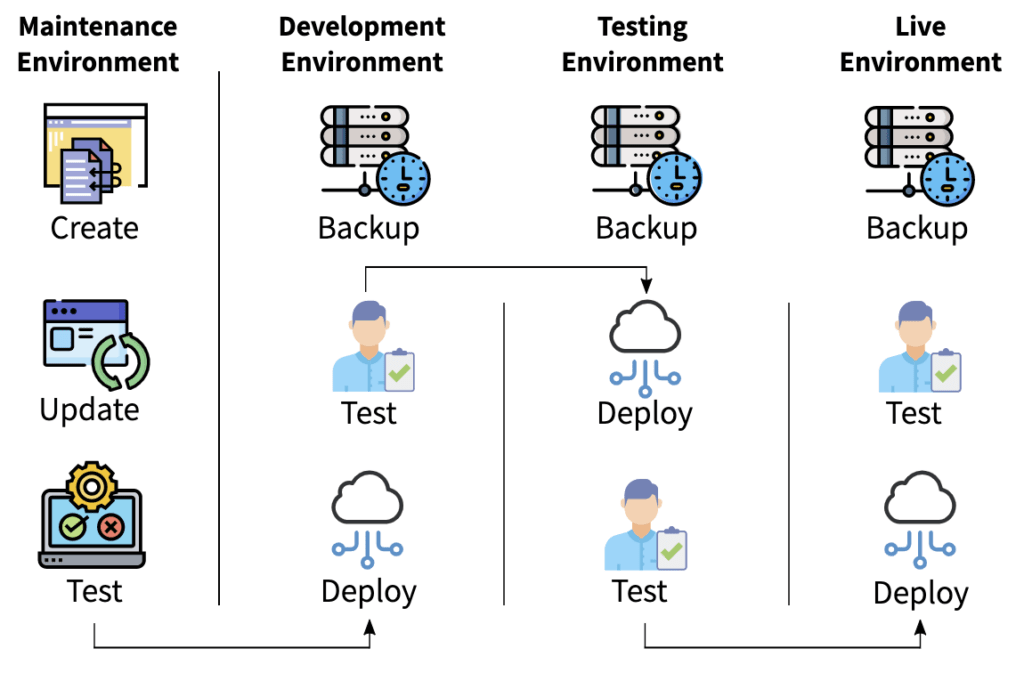The purpose of search engines is to help people find good quality information quickly starting from a user’s chosen search terms. Therefore, it is immensely important to business owners who want to be found through search to rank as high as possible in search results.
The key to success with this activity called search engine optimization (SEO) is to be among the top businesses that have the most relevant, informative, and useful content available. Search engines will rank your site on search engine results pages (SERPs) above others who are not practicing good SEO.
Follow these helpful SEO practices to rank better on SERPs.
On page (your website) SEO practices:
1. Relevant keywords: To attract the most visitors, first take the time to research keywords with a keyword tool. Keyword tools help you determine the most popular search terms. Select the most relevant, most popular terms, but not necessarily the most competed for terms. You want to leave a little room to carve out your own niche.
2. Brief, memorable, and unique title tags: Title tags are the words that best describe the purpose of your website. They catch the user’s attention to make them want to click and view your pages. Therefore, they should match most of your primary keywords. Keep the length of the title tag to 55 characters to keep it from getting cut off in the SERPs. Also, title tags should be short, but descriptive enough so that search engine crawlers and users can immediately understand the relevance of your page.
3. Title tags should have most of the keywords at the beginning: When Google evaluates a search query against potential pages to display in SERPs, it puts more weight on the beginning words, so be sure to “front load” your titles with the most relevant keywords.
4. Meta descriptions should prioritize your keywords: On SERPs, the meta description shows up beneath the title. It provides more context about your organization or company so a user is sure before clicking. The meta-description should be between 150-160 characters.
5. Include a sitemap: If your website’s structure is not current and simple to navigate, users and search engines will not be able to make sense of it all. Include a sitemap (WordPress sitemap plugins are easy to use) and keep the site structure basic and clear so the search engine crawlers can find and index pages. Follow a three-click rule to ensure that visitors can find what they’re looking for on your site in three clicks.
6. URLs should be SEO-friendly and include your keywords: URLs are another way that crawlers determine page topic and relevance. Make URLs short and include your keyword. Use hyphens (“-”) instead of underscores (“_”) to separate words and avoid numbers. That will improve the readability of URLs. Prioritize using sub-directories instead of subdomains.
7. Use anchor text to link internally: Don’t forget that your own web pages should link to each other or within themselves. Internal linking is a keyword-rich linking strategy that crawlers do recognize and prioritize for every page. Linking internally keeps readers on your site with more reading options and boosts the ranking for your keywords.
8. External links: Linking to high-authority websites and pages shows you are part of a larger information ecosystem and that you want to share page rank with others on certain topics.
9. Page speed is important: Slow pages are downranked on search engines because of data that shows that users will only wait a couple of seconds for a website to load. Do everything you can to achieve one second, or less, on load times.
10. Content should be really helpful: Content on your pages must be relevant and easy to read. It needs to be really unique, helpful, fresh, and without grammatical errors. Your content should be so useful and relevant that your visitors will want to stay on your page and recommend it so that others will want to link to it.

Gone are the days of clicking “Update” and hoping for the best. Let Webidextrous manage your maintenance. We’ll give you back your time and peace of mind.
SEO practices outside of your website (off-page):
1. Submit your site to search engines: If you don’t play an active role in notifying them, search engines can take several days to several weeks to find and crawl your site. Plan to submit your website frequently to popular search engines so that they will crawl your site as soon as possible for any new content.
2. Submit your site to local directories: This is an essential tip especially for businesses that serve “hyper-local” customer bases. Putting your business listing information in popular or niche directories such as Google My Business, Yelp, Angie’s List, and others makes it more likely that users will find you. Crawlers can also confirm your business information. Accurate business information is key to ensuring that you’ll rank higher. At the very least, submit NAP data (name, address, phone number). But, also include the website URL and specific category. The majority of searches are made by users using a keyword rather than knowing your specific business name, so category information is key to getting you found.
3. Engage in social media marketing: Don’t just use a service that robotically submits your content to all your social media channels. Actually be present and answering questions and showing your personality on all relevant social channels. Manage your online reputation by replying to comments, making comments, and replying to reviews. Work on getting likes, shares, and links by being more helpful than you are promotional.
4. Use video marketing: Use a quality camera,, point it at your face or your product, hit “record”, and talk about your business. Helpful content posted to YouTube, Facebook, Instagram, Vimeo, etc. will help users find out about your business and share your content with others.
5. Seek to earn backlink credibility: Buying backlinks is not a good strategy and will get you downranked. Instead, earn your backlinks by engaging in PR around your content-based public relations. Get others to read your pages and possibly link to you. Over time, your site will gain more authority through a preponderance of quality backlinks. Search engines will deem the page as relevant and useful.
6. Participate in forums and communities: Answer questions in communities and forums. Build your reputation as an industry expert. If it is relevant to the answer, include your website or blog link.
Conclusion
There are enough activities involved in SEO to keep you busy as a full-time job. Don’t try to do it all at once. Rather, pick one or two things to work on each day or each week and track your progress and improvements. Above all, focus on keywords and internal links, outbound links, and backlinks. The rest will follow.
If you need further help with search engine optimization, schedule a consultation with Webidextrous.
Rob Watson
Latest posts by Rob Watson (see all)
- TikTok: A Persistent Risk for Business Branding and Outreach - July 25, 2024
- SEO Learning Outline: 10+ Tips to Supercharge Your Neglected Websites - March 16, 2024
- What are session cookie hacks and why should WordPress users care? - March 8, 2024
- More effective AI: 5 ways your chatbot could be harming your business - February 17, 2024
- 2023 WordPress Maintenance: Critical Issues in Security and Performance - December 4, 2023


0 Comments